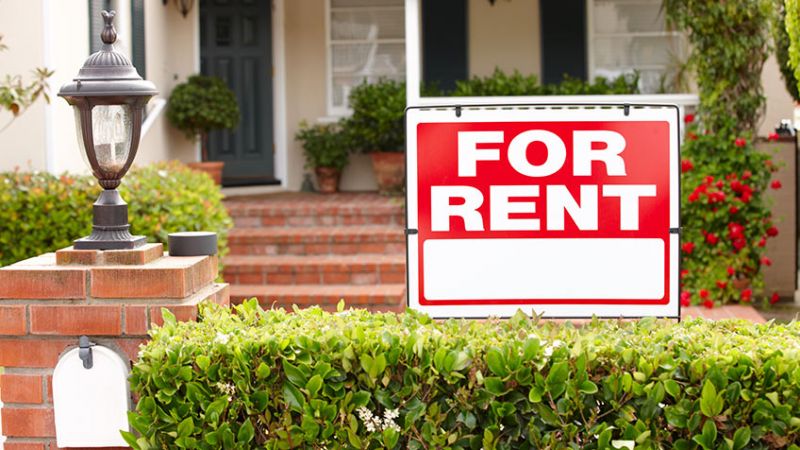
Whether you're a seasoned landlord managing multiple properties or a first-time investor getting your feet wet in the UK rental market, effective property management is essential for ensuring steady cash flow and long-term profitability. In today’s competitive rental environment, it’s not enough to simply secure a tenant and collect rent each month. Successful landlords pay close attention to property upkeep, tenant satisfaction, and changing regulations to stay ahead.
In this blog post, we’ll break down five essential tips to help you manage your rental property more efficiently — and increase your bottom line. These tips are ideal for DIY enthusiasts taking on the role of landlord, young professionals investing in second properties, and even architects and tradesmen seeking a reliable side income stream.
1. Keep Your Rental Property Well-Maintained
Consistent maintenance isn’t just about keeping the property looking pretty — it directly impacts your rental returns. A well-maintained property is more attractive to prospective tenants, retains current tenants longer, and helps you avoid costly emergency repairs in the future.
Start with routine inspections. Carry out a thorough walk-through at least every six months, checking for leaks, damp, faulty wiring, cracked tiles, and signs of wear and tear. Handle minor repairs as they arise — addressing small issues early often prevents them from becoming big (and expensive) problems later on.
Highlight any potential hazards associated with electrical or gas installations. In the UK, landlords are legally required to obtain and renew Electrical Installation Condition Reports (EICRs) every five years. Similarly, annual Gas Safety Certificates are mandatory for all gas appliances. Staying compliant not only keeps your tenants safe, it also protects your assets and helps avoid fines or legal action.
If you’re managing multiple properties or live far from your rental home, consider hiring local professional tradesmen to handle ongoing maintenance. Building a reliable network of plumbers, electricians, and handymen ensures a quick response when issues arise — a key factor in tenant satisfaction.
Lastly, don’t underestimate the power of curb appeal. The exterior of your property is the first impression tenants get. Seasonal gardening, clean windows, and a fresh coat of paint on the door can make a world of difference — particularly for young professionals and families looking for a welcoming place to call home.
2. Set the Right Rental Price
Setting the right rent is a crucial component of profitable property management. Price it too high, and your property can sit vacant for months. Too low, and you’re leaving profit on the table.
Start by researching comparable properties in your area. Use online platforms such as Rightmove or Zoopla to analyse current asking rents for similar properties. Pay close attention to location, number of bedrooms, amenities, and condition. Note how long properties remain on the market – this can be a key indicator of whether an area is saturated or in high demand.
Factor in your property's unique features. Is it recently renovated? Does it include modern appliances, secure parking, or outdoor space? Consider these upgrades when setting your price point. In metropolitan areas like London, Manchester, and Birmingham, even minor amenities like in-unit laundry or double-glazed windows can command higher rents.
Review your rent regularly. The UK rental market fluctuates often, and adjusting your rent annually (in accordance with your tenancy agreement and local regulations) can ensure you stay competitive and profitable. Just be transparent and fair when implementing increases — long-term tenants often accept raises if justified by market value or home improvements.
3. Screen Tenants Thoroughly
Having the right tenant in place can make or break the success of your rental venture. An ideal tenant pays rent on time, respects your property, and communicates promptly about any issues. Effective screening helps you find someone who’s reliable, trustworthy, and financially stable.
Start by requiring a comprehensive rental application. Request previous landlord references, employment details, credit history, and proof of income. Ideally, tenants should earn at least 2.5 to 3 times the rental amount to ensure affordability. Don’t forget to perform a credit check and verify previous letting history — many evictions or rental issues could have been prevented with proper pre-qualification.
Use a professional tenant referencing service to streamline this process and ensure compliance with the latest legislation such as the Tenant Fees Act and Right to Rent checks. In the UK, it’s also your legal obligation as a landlord to check that all tenants have the right to rent in England, so knowing the specific documents required is critical.
Interview prospective tenants in person if possible. This gives you a chance to gauge their communication style and expectations. Remember, a good relationship with your tenant can reduce turnover, property damage, and stress — and those savings can significantly boost your profits over time.
4. Keep Accurate Records and Stay Compliant
Running a rental property is akin to operating a small business — and good business runs on transparency and organisation. Maintaining detailed records helps you understand your return on investment, track expenses, manage tax requirements, and stay compliant with ever-changing UK housing legislation.
Start with a robust digital filing system that includes tenancy agreements, maintenance bills, safety certificates, insurance policies, and communication logs. Consider using property management software or cloud-based solutions like Landlord Vision or Arthur Online, ideal for landlords juggling multiple units or working with letting agents.
Staying compliant with UK legislation is vital. From deposit protection to fire safety inspections, the legal obligations can be overwhelming, particularly for new landlords. Deposit money must be held in government-backed schemes such as DPS, TDS, or MyDeposits. Failing to do so can result in penalties and delays in serving mandatory documents.
Here’s a summary of legally required documents and notices you should provide to tenants:
| Document or Check | Requirement | Frequency |
|---|---|---|
| Energy Performance Certificate (EPC) | Minimum Rating of E required | Every 10 years |
| Gas Safety Certificate | Issued by Gas Safe engineer | Annual |
| Electrical Safety Certificate (EICR) | Certified inspection of electrical systems | Every 5 years |
| Right to Rent Check | Proves tenant’s legal right to rent | Before tenancy begins |
Regular auditing of your own systems ensures that nothing slips through the cracks — saving you from fines or disputes down the line.
5. Reduce Turnover and Build Long-Term Tenant Relationships
Frequent tenant turnover is one of the biggest expenses a landlord can face. From marketing and cleaning costs to potential vacant periods, changing tenants often puts your cash flow at risk. The solution? Focus on building long-term tenant relationships through excellent service and fair treatment.
Respect your tenants’ privacy — always provide a minimum of 24 hours’ written notice before entering the property, as required by UK law. Handle repairs promptly, communicate openly and professionally, and address concerns with empathy. This builds trust and shows tenants that their comfort matters to you.
Small gestures can go a long way. A welcome package with local information or even a bottle of wine can make a strong first impression. Around holiday seasons, a handwritten card shows that you see your tenants as people, not just occupants.
Consider offering incentives for lease renewals. This could be a small rent discount, a complimentary service like carpet cleaning, or an upgrade to the property (e.g., a better appliance or improved Wi-Fi setup). These modest investments can end up saving you hundreds in lost rent, marketing fees, and void periods.
Soliciting feedback through tenant satisfaction surveys also empowers long-term improvements. It shows that you’re invested in their experience and are proactive about their needs. Happy tenants often recommend the property to friends or colleagues, expanding your reach and reputation as a quality landlord.
Final Thoughts
Managing a rental property in the UK involves far more than collecting rent — it's about maintaining the property, setting fair prices, following legal obligations, and offering excellent customer service. By focusing on these five essential tips, you’ll not only streamline your operations but also build a solid reputation as a reliable and profitable landlord.
Whether you’re a DIY enthusiast transforming a second home into a rental, a designer adding investment properties to your portfolio, or a professional tradesman supplementing your income, these strategies will help you maximise profits and reduce the stress associated with tenancy management. Build smartly today for a more secure financial tomorrow.




